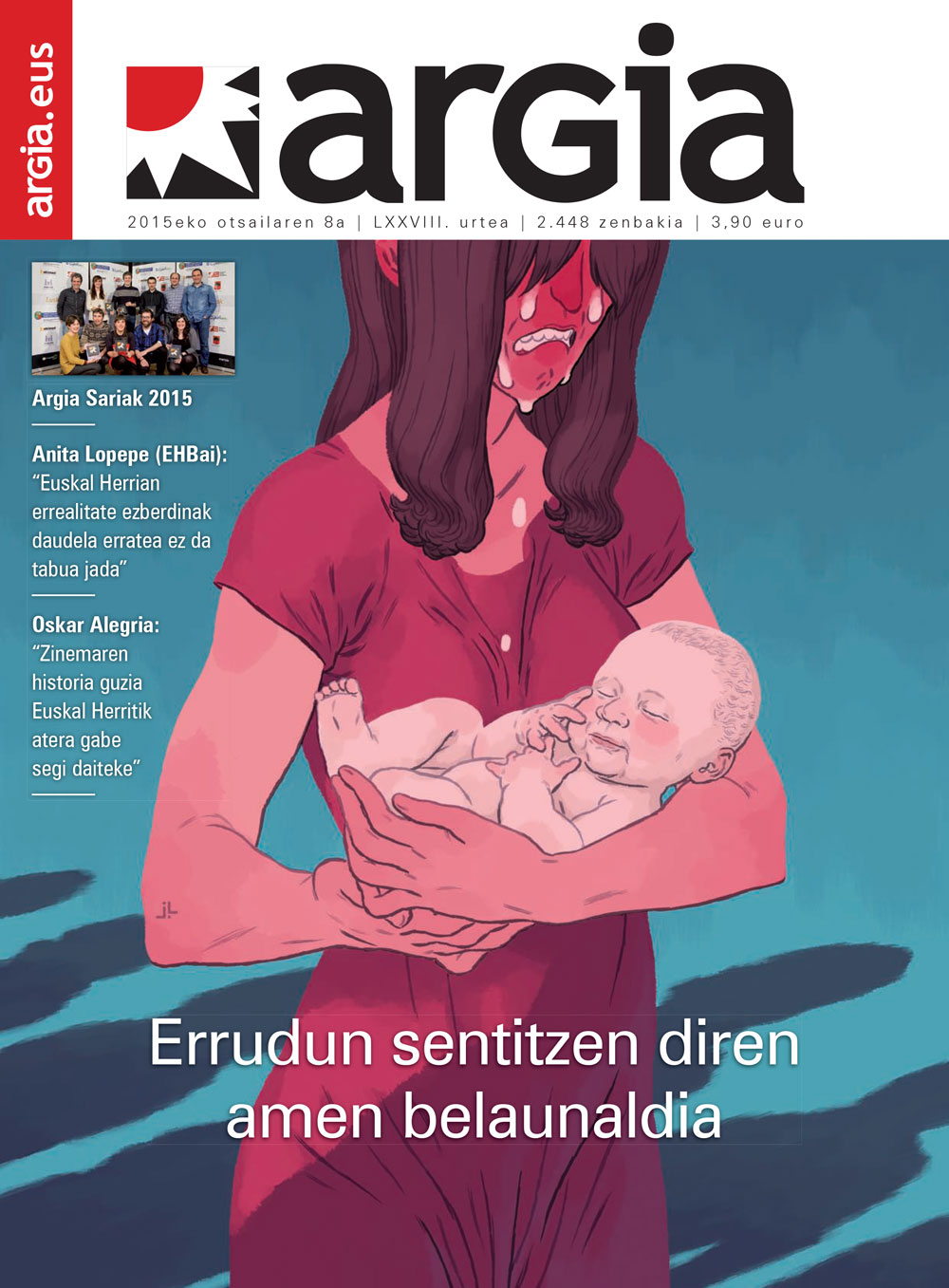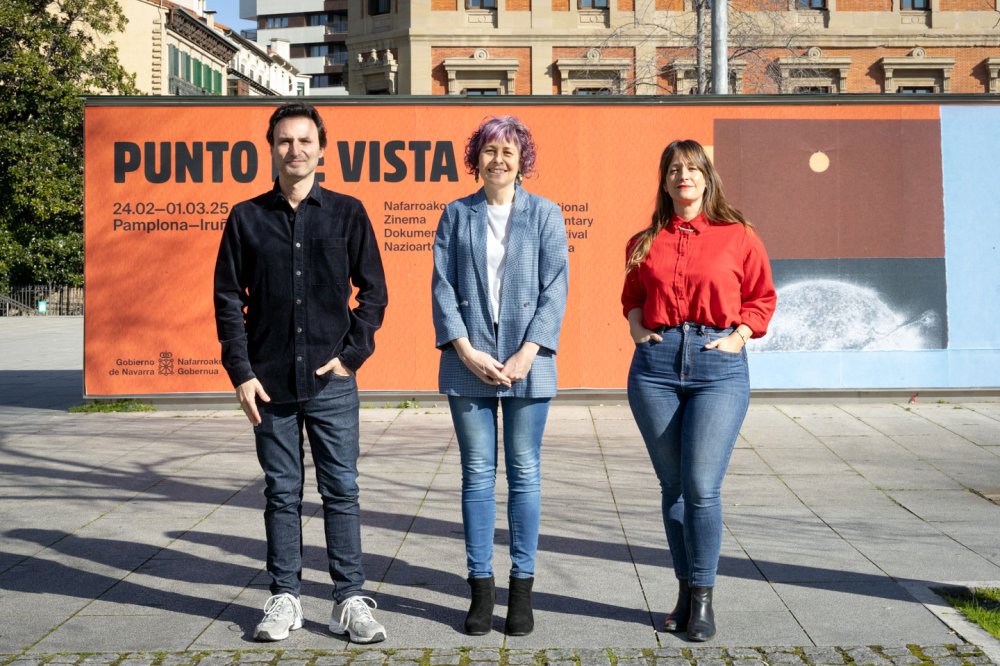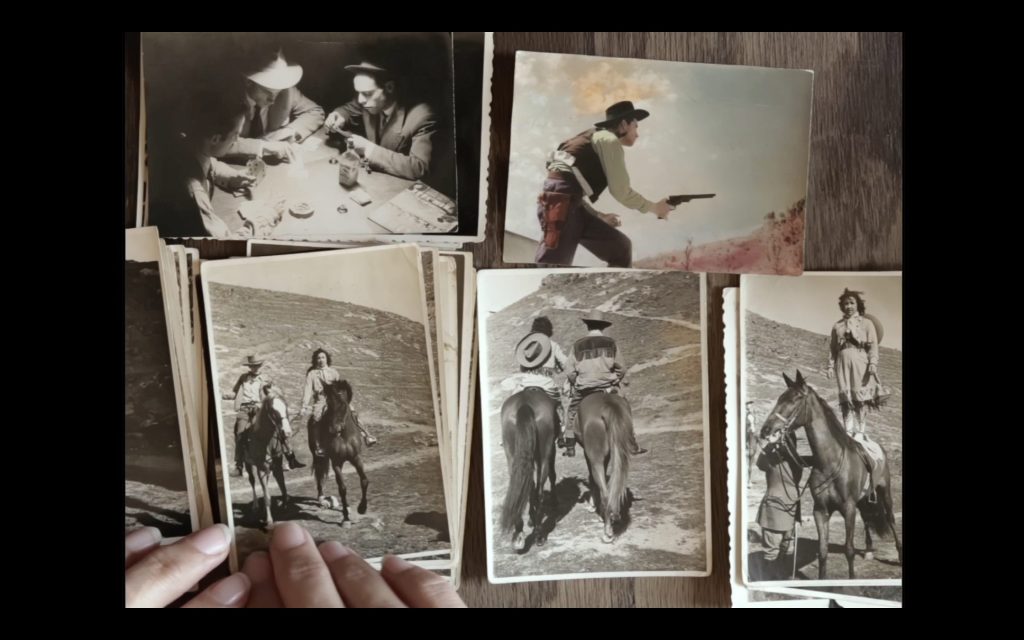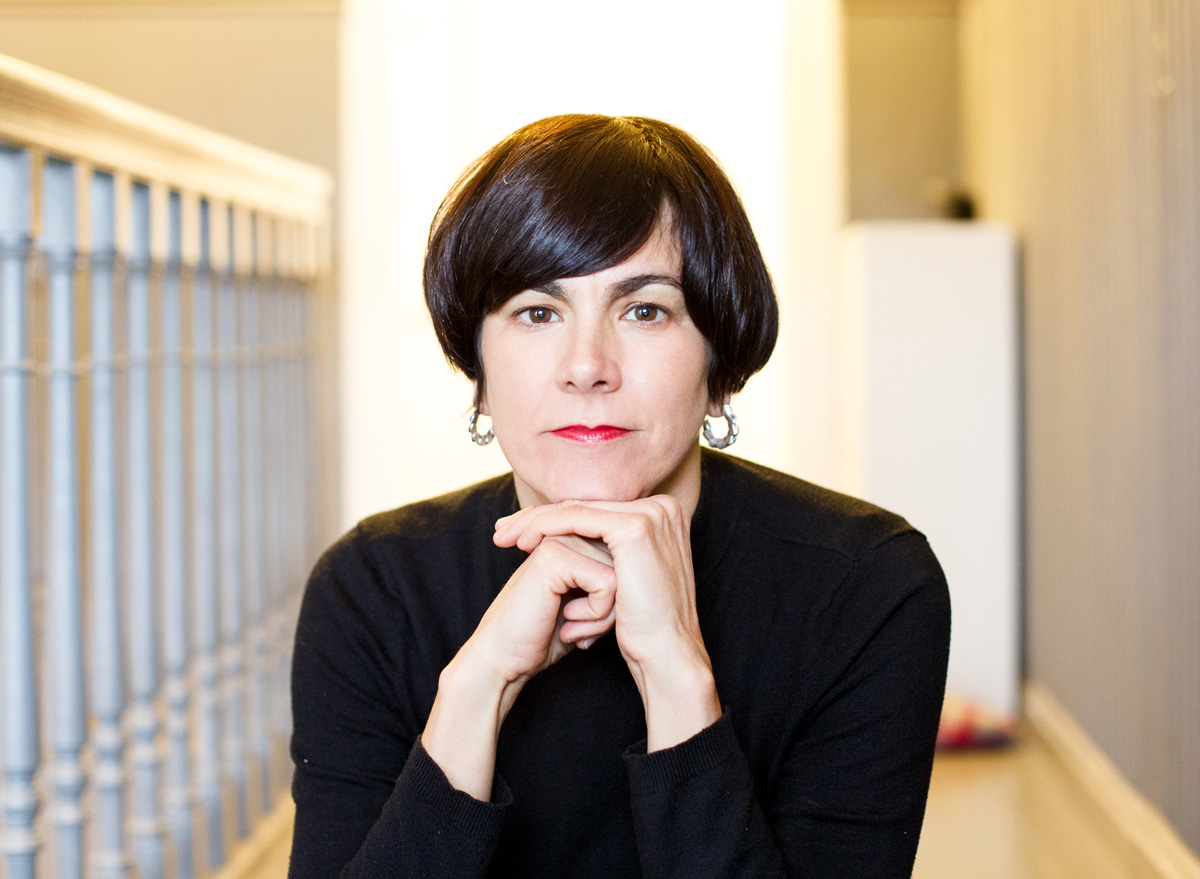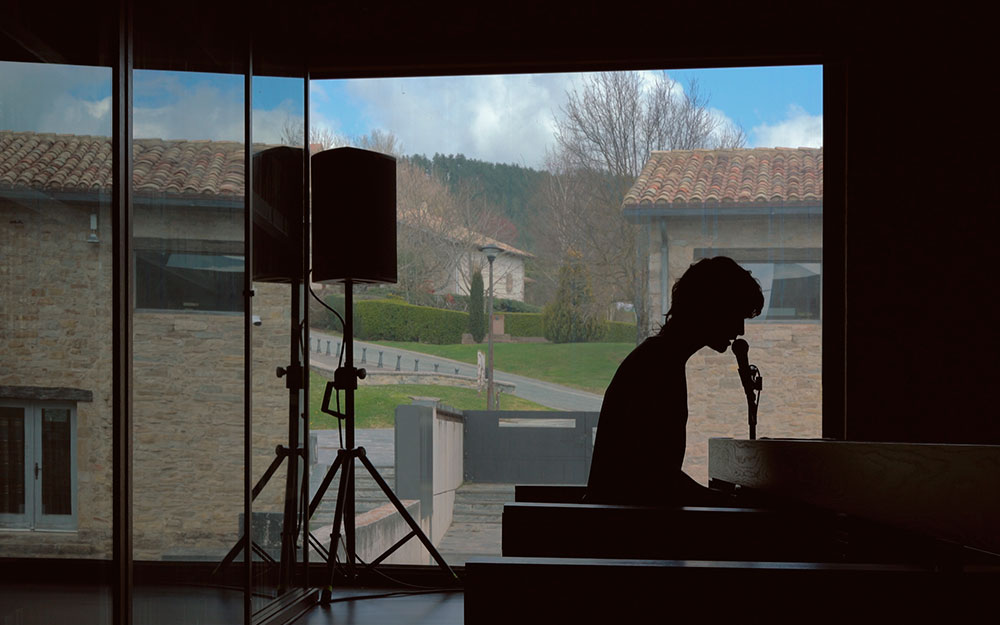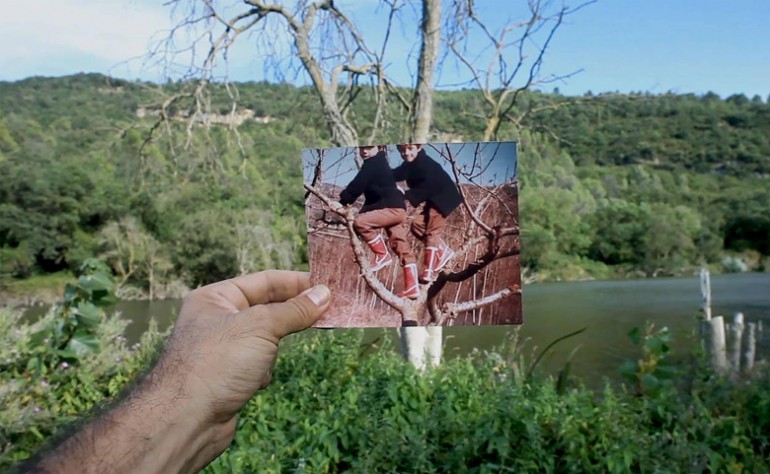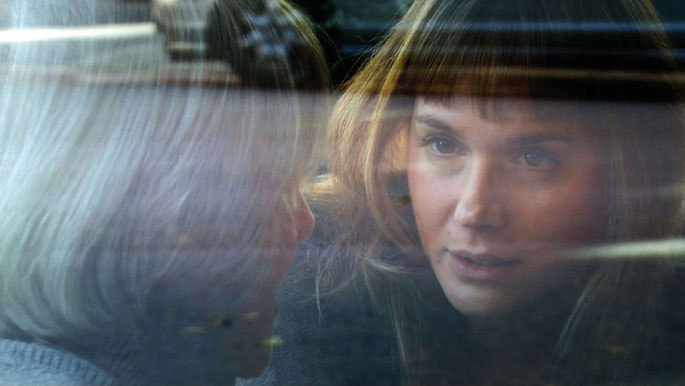"We Basques have also aroused the interest of so many documentalists because we are an island."
- The International Documentary Film Festival of Navarra Ikuspegi celebrates its ninth edition between 10 and 15 February in Pamplona. Oskar Alegria, the artistic director of the festival, tells us about the documentation, the cinematic exercises, the gaze, the details of Ikuspuntua.
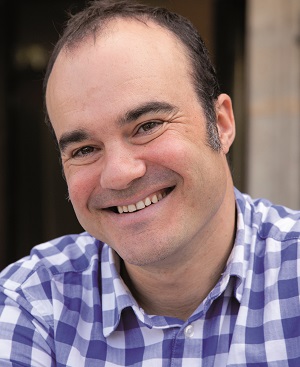
In view of the work you have seen in this year’s edition, is the trend towards documentary production being imposed?
Without realizing it, three directors have been repeated in some edition prior to Ikuspuntua: Antoine Boutet, Eric Baudelaire and Adam Gutch. We have not done so expressly, but that means that we are on the line of the previous leaders and it is a good record, we are not in favour of fracture, of the hack; the pioneers have put the festival in an admirable place and have had to walk in that place. There are not many subjects covered: I fully agree with what Giorgio Agamben says, the stories of the world enter the seven classifications and it is now. Human beings are still in that: love, denunciation, forgiveness... What changes is form, landscape, people… but the essence is the same as always.
What have you set yourself to in the selection process? What do you ask of a documentary?
To have a stop, to feel a head that thinks in the background and to postpone unanswered questions. The spirit of the festival is Jean Vigo, an independent spirit exploring trails, and that is our starting point and our goal. We're looking for daring, daring, aggressive documentaries, able to shake the bowels, born from the heart or from the belly, and not from the pocket.
What responsibility does the documentary have about reality and what it is counting, knowing that there is no neutral gaze?
… and it must never be neutral. That was what Jean Vigo urgently meant by inventing the expression “the documentary point of view” (hence the festival took its name). The documentary is nothing more than a portrait of reality, it dances with reality. Sometimes it is the documentary that governs that dance, and in others it is the reality that marks the steps. As for the presence of the author, I would place the barrier, but there is always the presence of the author.
Have the films that will compete in Point of View focused on current issues, or predominate universal issues?
Some of them are complaints, shouts, and that is why we are clinging to the present day. South to North, on the gigantic Chinese water transport project from one side to the other, is an impressive film; Our terrible country talks about all the demons of Syria; or Letter to Max is a highly recommended exercise, says whether Abkhazia exists or not a “ghost nation.” Others talk about universal themes: Death Before we go and Fingerprints, it is a poetic journey Frozen man, it is the portrait of pure artist Patrick Neu in Le Complexe de la Salamandre… There is everything. According to oenologists, the official section of this year is a beautiful arno capable of collecting all the flavors.
Looking at the synopsis of the short films, it seems that we are going to find more artistic works than in the feature films. Have you rewarded experimentation?
Yes, short distances seem to offer more or less chances of doing other kinds of exercises. For example, the Spanish OUT tells us a tennis match, but without showing the tennis players; in Super Unit we are shown a special house in Poland, jumping from the room to the room, and three seconds are enough to portray a family; or the Rainbow´s Gravity trial analyzes the influence of color on our day to day.
France is the most repeating producer country among the documentaries selected for the competition. Is it especially a fertile country in the world of documentation?
He relaxes in the kitchen from the moment he takes the knife to cut the onion, being indebted to France. In film the same thing: don't forget that it's a local invention, and maybe it's not that easy to escape from France when we talk about film. For organised cycles, the following names shall also be called French weight names: Jean Epstein, Louis Delluc, the Lumière brothers…
The programme will deal with the documentaries that Orson Welles made on the Basque Country: Pays Basque I (The Basque Countries) and Pays Basque II (La Pelote Basque) Would you say what Euskal Herria showed?
Mr. Welles came to search for a paradise and met a family who had discovered it before him: Wertenbakenses. Although they lived in Ziburu, they were Americans. Initially they came to spend a week, but the young man Chris Wertenbaker (an 11-year-old boy who appears in the documentary of Orson Welles and who serves as a guide in the film) told me that once he fell running on the hill of Ziburu, a neighbor (Pepita Telleria) took him home after his mother told him: “The people here are like the people, here we will stay to live,” and they were seven years in Ziburu. Chris Wertenbaker settled on our coast and was an unbeatable guide for the American director about clean play, Basque dances or the Basque. We will have it here, at the opening of the festival.
Other works by filmmakers who have shot in Iparralde will also be projected. What have you stressed above all, are there common elements?
They are real treasures. Imagine, in what corner of the world have you been so many times to portray a film filmmaker culture, or to catch a landscape? I can't think of anything else. What is more, it is possible to continue without leaving our corners the entire history of cinema! After filming the Lumière brothers the movement of the train and the departure of the workers, they came to Biarritz to seek another movement: the waves. They had caught the waves near the Rock of the Virgin. The first sound, recorded on the outside, was in 1930 and also for this invention the master Maurice Champreux chose the Basques, as popular singers. He picked up the first words shot in Euskera and we'll see all of that at the festival, which this year is 30 years old. I would also like to mention the unknown film shot by Louis Delluc in 1921, a real gem: after passing through all corners, he chose for the film the slopes of the mountains that look at the Sea of Ascain, which he considered the most beautiful light in the world.
There have been three backviews organized: Dedicated to the Scottish filmmaker Margaret Tait, on documentaries starring the islands and on Isidoro Valbuenos in La celosía, who reflects on the limits of cinematography.
After all, they are all based on the islands and the documentaries about us, because the Basques have been and are an island, and that is why we have aroused the interest of so many documentalists. Margaret Tait was created in one of the islands of the Orchada (northeast of Scotland) and this island has a great presence in her films, where she dedicated a deep and poetic film to the Orquil River. In addition to this retrospective, eighteen films show a cycle that will allow us to visit twenty-two and a half islands: show the thousand faces of an island that can be a paradise, the artist’s hut, the cruel prison…
And the same Isidoro Valcárcel Medina is another island, or rather, a nausea. We propose a re-reading of the shipwrecks, Robinson Crusoe and [Crusoe frees the natives] On Friday we want to create a debate about the characters: Who is the winner and who is the loser? In the case of Valcárcel Medina, we are dealing with a shipwreck of art, one of the precursors of conceptual art, an artist who has never sold works of art. He will come to Pamplona/Iruña to present again the film he premiered here in 1972.
In addition, Ikuspegi will create the movie The Darkness Collection, which can be seen in ETB2. This is a selection of 38 short films revolving around the darkness, from the view of 42 directors. You've guided the project.
One day I rolled my darkness into the village of my parents, we all have a darkness, and mine is in that village. I mean, there's a place where we feel the darkness in a very personal and strong way. It occurred to me to ask other filmmakers to film their darkness to create a collection. Darkness is a very broad concept, more than you think, not only is it related to the night, but there are also oscurities during the day or when there is light. And each one bears his own. For a San Francisco filmmaker, the darkness (a woman’s navel), for a Finnish director, the gigantic cruise that runs through the night… It has been very nice to pick up these oscurities in the mailbox. I have been sent around every corner of the world and sometimes I put a “light” envelope… Very nice, right? With light darkness I made a long film. Without a pause, we will issue three hours of film in a dark and special room located in the Baluarte casings, and people will be able to enter and leave at any time, because the film has no beginning or end, it is also darkness.
The film by Navarro Itsaso Arana John and Gena will be in charge of closing this year’s edition.
Itsaso has done a highly recommended exercise. The movie tells and recognizes loves, mysteries, and feelings. The same sea will be in the room and will perform a live action on the movie; we don't know what, because it's always different, always by surprise. We thought it appropriate to end the point of view, because after talking about love, we will celebrate the party all together.
Otsailaren 24tik eta martxoaren 1era bitartean, astebetez 60 lan proiektatuko dituzte Punto de Vista zinema dokumentalaren jaialdian. Hamar film luze eta zazpi labur lehiatuko dira Sail Ofizialean; tartean mundu mailako lau estreinaldi eta Maddi Barber eta Marina Lameiro... [+]
Martxoaren 2an zabalduko dizkio ateak Iruñeak zinema dokumentalari eta hilaren 7ra arte gertuko eta urruneko obrak bilduko ditu Punto de Vista jaialdiak ikuspegi kritiko, sortzaile eta esperimentalez. Aste osoan egongo dira ikusgai lan ugari, baita zinemarekin zerikusia... [+]
René Le Henaff zuzendariak hiru dimentsioen teknikarekin esperimentatzeko Euskal Herrian grabatu zuen filma aurkitu du Josu Martinez zinegile eta ikerlari bilbotarrak. Euskadi filmaren lau emanaldi egingo dituzte martxoan, Bilbon, Iruñean, Donostian eta Baionan.
Oskar Alegriak Punto de Vista –lagunartean Ikuspuntu– zinema dokumental jaialdiko zuzendaritza artistikoa utziko du aurtengo edizioaren ondoren. Hala iragarri du jaialdiak bere webgunearen bitartez, programazioaren berri ematearekin batera. Emak Bakia baita filmaren... [+]
The Punto de Vista festival of Pamplona/Iruña last Saturday offered the director José Luis Guerin almost all day, before the closing of the tenth edition. In the morning he presented L’Accademia delle muse with good entry: “We’ve met more people than at the PNV event and... [+]







